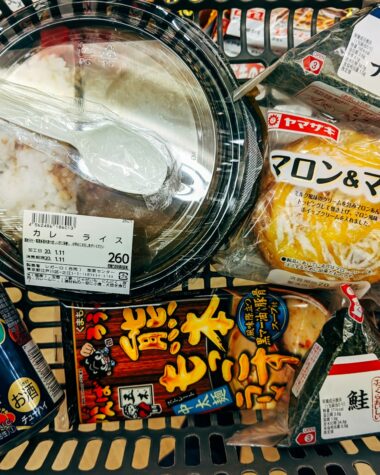In a world driven by constant consumption, minimalism offers a refreshing counterpoint. It’s not about living with as little as possible; it’s about intentionality—making deliberate choices about what you own, how you spend, and what you value. One of the most powerful benefits of this lifestyle is its impact on financial freedom. By reducing unnecessary expenditures and focusing on essentials, minimalism allows money to work for you rather than the other way around.
Financial freedom isn’t just about accumulating wealth; it’s about creating flexibility, security, and the ability to make choices without being constrained by financial pressure. Minimalism provides a framework for achieving this by aligning spending habits with meaningful priorities.
1. Reducing Impulse and Unnecessary Spending
The Cost of Clutter
Clutter often reflects financial clutter. Multiple gadgets, fast-fashion items, or subscriptions that go unused may seem small individually, but over time they drain resources and add stress. Minimalism encourages evaluating purchases carefully: do they serve a true need or simply fill a temporary desire?
By eliminating unnecessary items, you free up money that can be redirected toward savings, investments, or experiences that genuinely enrich your life. This shift doesn’t feel like sacrifice because it prioritizes value over volume.
Mindful Buying Practices
Minimalist principles promote intentional buying. Asking questions such as “Will I use this regularly?” or “Does it align with my priorities?” reduces impulsive decisions. Even small adjustments—like delaying non-essential purchases for 24 hours—can compound into significant financial gains over time.
2. Simplifying Financial Commitments
Fewer Subscriptions, More Control
Modern life encourages signing up for multiple services—streaming platforms, apps, memberships. Minimalism inspires regular audits of these commitments. Canceling underused subscriptions reduces monthly drain and simplifies your financial landscape, giving you better control over your money.
Avoiding Lifestyle Inflation
Minimalism also counters lifestyle inflation—the tendency to increase spending as income rises. Instead of upgrading everything with each raise, minimalist living encourages maintaining a simple, satisfying lifestyle while channeling extra income into savings or investments. This deliberate approach accelerates wealth accumulation and reduces financial stress.
3. Focusing on Quality Over Quantity
Investing in Durable Essentials
Minimalism emphasizes quality. Choosing fewer but higher-quality items—clothing, appliances, or household goods—reduces replacement costs and avoids the cycle of frequent spending. High-quality purchases may cost more upfront, but they save money in the long term and provide greater satisfaction.
Reducing Wasteful Consumption
When you focus on quality over quantity, you naturally consume less. This reduces not only financial waste but also mental and physical clutter. Owning items that truly serve a purpose creates a sense of abundance without unnecessary expense.
4. Prioritizing Experiences and Growth
Spending on What Matters
Minimalism encourages investing in experiences rather than possessions. Travel, learning, and personal development often provide lasting satisfaction compared to material goods. By reallocating funds from excessive consumption to meaningful activities, you cultivate both happiness and financial prudence.
Long-Term Value Over Short-Term Gratification
Shifting focus from instant gratification to long-term value helps reduce impulsive spending. Money spent on experiences, education, or skill development often provides returns that far exceed the fleeting pleasure of material purchases. This mindset supports both financial and personal growth.
5. Building a Streamlined Financial System
Simplifying Accounts and Tracking
Minimalism extends to financial management. Reducing the number of accounts, credit cards, and payment platforms makes it easier to track spending, pay bills on time, and manage investments. A streamlined system reduces mistakes and provides clarity, which is crucial for financial freedom.
Creating Clear Goals
With fewer distractions and a clearer understanding of priorities, minimalist living enables focused financial goal-setting. Whether saving for a home, retirement, or an emergency fund, this clarity allows for consistent progress and measurable success.
6. The Psychological Benefits of Minimalism
Reduced Stress and Decision Fatigue
Owning less and managing simpler finances reduces mental load. Decision fatigue decreases when daily choices are intentional and aligned with values. This improved clarity helps maintain discipline, reducing unnecessary spending and promoting financial health.
Empowerment Through Choice
Minimalism fosters a sense of empowerment. By intentionally choosing what to own and where to allocate resources, you create control over your financial life. This control translates directly into freedom—the freedom to make choices without being burdened by debt or overconsumption.
Conclusion
Minimalism isn’t merely a lifestyle trend—it’s a strategy for financial liberation. By reducing unnecessary spending, focusing on quality, prioritizing experiences, and simplifying commitments, you create the conditions for real financial freedom.
The benefits extend beyond money. Minimalist living reduces stress, enhances clarity, and aligns your resources with your values. It transforms finances from a source of pressure into a tool for intentional living. In essence, by owning less and spending smarter, you gain more: more security, more flexibility, and more freedom to live life on your own terms.








